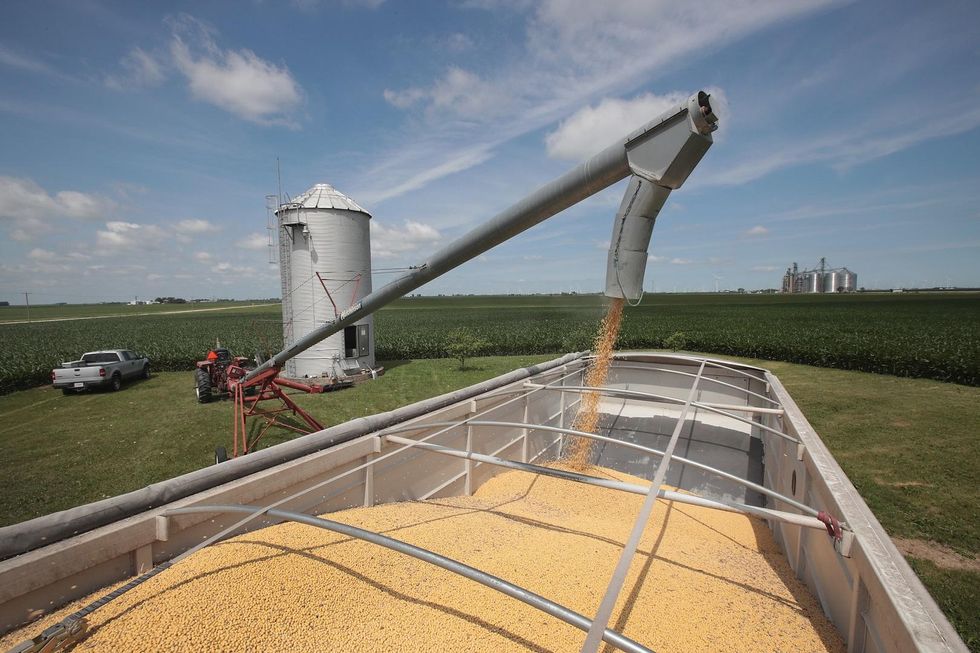The White House will announce on Tuesday that it will be offering $12 billion in emergency aid to farmers hurt by foreign tariffs imposed to counteract President Donald Trump's trade policies, according to a report from The Washington Post. The Post credited "two people briefed on the plan" as sources.
What's the background on the tariffs?
In response to steep tariffs imposed by the Trump administration, China has responded with tariffs of its own on American goods. These Chinese tariffs have hit farmers particularly hard.
As just one example of how farmers are impacted, China used to import $1 billion worth of American-grown sorghum annually, which made up 77 percent of all U.S. sorghum exports. After Trump hit China with tariffs, they responded with a 179 percent retaliatory tariff on U.S. sorghum. This caused the price of sorghum to drop significantly, and forced ships full of sorghum heading to China to change course.
Sorghum is only one out of many farm products hit by tariffs from China and other nations in response to the Trump administration's tariffs.
Soybean farmers have also been hurt by falling soy prices tied to these tariffs.
In addition to the direct impact of tariffs on American farm products, farmers have also been hurt by U.S. tariffs on foreign steel imports. These steel tariffs have caused the price of steel to jump significantly, which in turn has caused the price of farm equipment to also rise.
To date, every time that the Trump administration has imposed a tariff on China, China has imposed an equal tariff on U.S. goods. Trump said on Friday that he would be willing to slap tariffs on every last import from China. In 2017, Chinese imports to the U.S. totaled around $505.5 billion.
Where is the $12 billion coming from?
The $12 billion will reportedly come in the form of direct assistance, a food purchase and distribution program, and a trade promotion program. This aid package can be authorized without congressional approval because it uses the Department of Agriculture's Commodity Credit Corporation, a Depression-era program authorized to borrow up to $30 billion in order to “stabilize, support, and protect farm income and prices.”
Trump tweeted on Tuesday morning, saying "[t]ariffs are the greatest!" and that other nations would have to negotiate better trade deals with the United States or be hit by additional tariffs. "All will be Great!" he concluded.
What are critics saying?
Not everyone in Trump's own party is happy with the move. Rep. Justin Amash (R-Mich.) responded to the president's tweet, saying: "Umm…no. Tariffs are taxes. And American consumers are the ones who get hit with U.S.-imposed tariffs. The fact that other countries are bad at economics—and harm their own people with tariffs and other protectionist schemes—does not justify our own economic incompetence."
Sen. Rand Paul (R-Ky.) also tweeted, saying: "Tariffs are taxes that punish American consumers and producers. If tariffs punish farmers, the answer is not welfare for farmers — the answer is remove the tariffs."
Sen. Ben Sasse (R-Neb.) was even more scathing in his response to this move. Sasse released a statement saying "This trade war has been cutting the legs out from under farmers and White House's 'plan' is to spend $12 billion on gold crutches. America's farmers don't want to be paid to lose — they want to win by feeding the world. This administration's tariffs and bailouts aren't going to make America great again, they're just going to make it 1929 again."




